Reading Spark Plugs
If your spark plugs are fouled or damaged, it can lead to a host of problems including reduced gas mileage, slow acceleration, engine misfires and trouble starting the engine. If you are experiencing engine problems, taking a look at your spark plugs is a good place to start. When reading spark plugs, you will likely find one of the following conditions:
- Normal
- Carbon fouled
- Oil deposits
- Wet
- Burned
- Worn electrodes
- Broken electrodes
Checking the Performance of Your Engine
Examining your engine’s spark plugs can give you an idea of how the engine is running. You can do this as part of the routine maintenance of your car, ATV, lawnmower or boat, or if you suspect something is wrong with the engine.
Getting Started
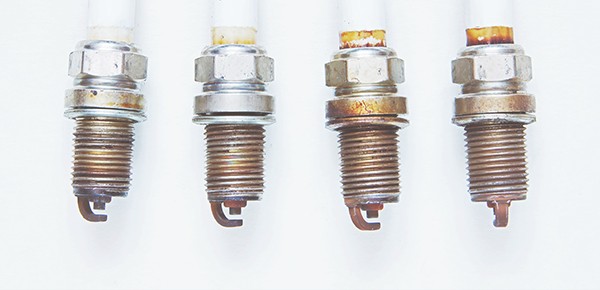
The first step is removing the spark plug you want to look at. Follow these instructions on how to remove a spark plug. Take the spark plug in your hand and begin looking at it for signs of damage. Look at end of the spark plug that was in the cylinder and examine it. You will likely see one of the following conditions.
Normal spark plug
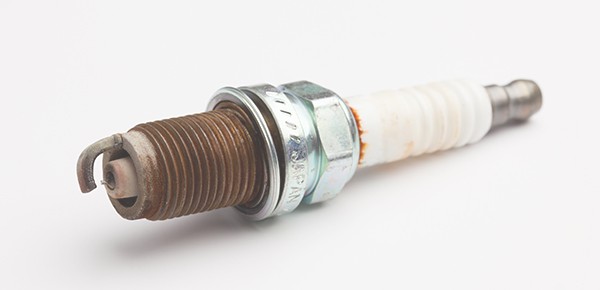
A normal spark plug will have brown or grayish-tan deposits on the side electrode. Everything is just fine with your spark plug; you can reinstall the spark plug.
Carbon fouled
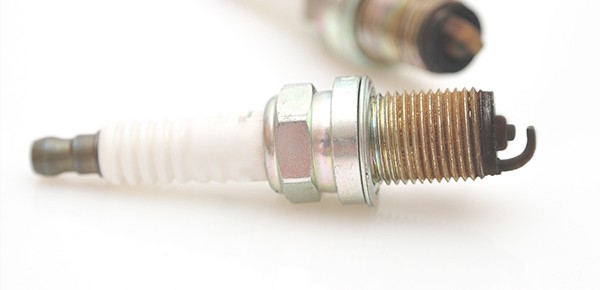
Black, dry soot on the electrodes and insulator tip indicates a carbon-fouled plug. This can be caused by a dirty air filter, excessive driving at low speeds, too rich of a fuel/air mixture or idling your vehicle for too long. Your mechanic can offer you advice on what type of spark plug to buy to replace the damaged plug, but you may want to consider switching to a “hotter” spark plug (the higher the spark plug number, the hotter the plug).
Oil deposits
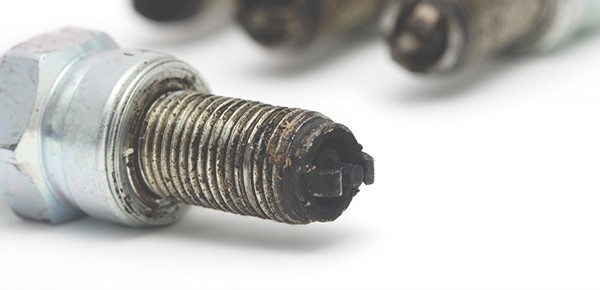
Black, oily deposits on the electrodes and insulator tip points to an oil-fouled plug. Oil could be leaking into the cylinders, getting past pistons that are worn or valve guides that are worn. Finding the source of the leak is very important – consult a mechanic for guidance. Once the problem is addressed, you can replace the spark plug.
Wet
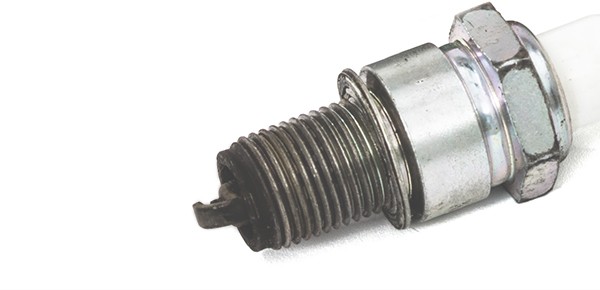
A wet spark plug can be the result of the engine flooding. Flooding is what happens when you try to start the engine several times without it firing up. You can clean the spark plugs or you can just wait for them to dry out.
Burned
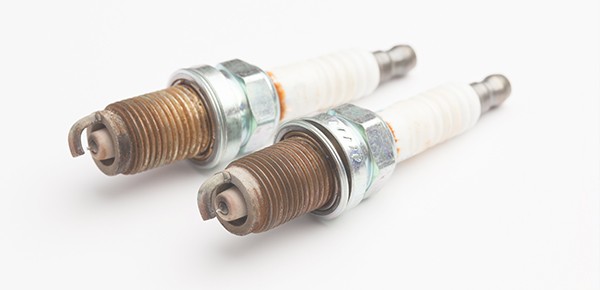
Blisters on the insulator tip, melted electrodes, or white deposits are signs of a burned spark plug that is running too hot. Causes can include the engine overheating, incorrect spark plug heat range, a loose spark plug, incorrect ignition timing or too lean of an air/fuel mixture. The spark plug should be replaced.
Worn electrodes
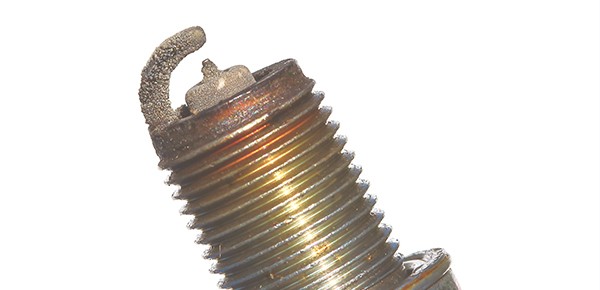
Worn and eroded electrodes are symptoms of a spark plug that is past its prime. The plug has been in the engine too long and needs to be replaced.
Broken electrodes
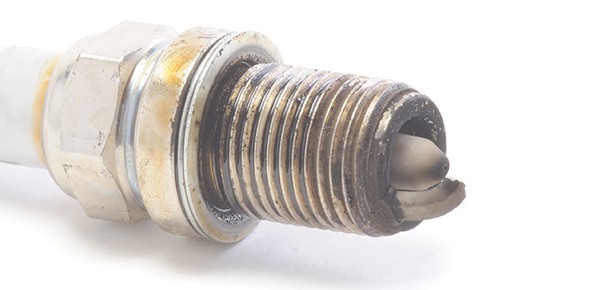
If the electrodes are broken off or flattened, it is likely that the wrong spark plugs are installed. A spark plug that is too long can cause extensive damage to your engine while a short spark plug can cause poor gas mileage and spark plug fouling. Check your owner’s manual to ensure that you have the correct spark plug for your vehicle.
What’s next?
If you have determined that you can reinstall the spark plug or are installing a new one, follow these instructions. You can then continue to examine your spark plugs, one at a time. If your spark plugs need replacing, you can tackle it yourself or if you feel you need further assistance, contact your trusted mechanic.
Learn more about quality ignition parts, find your car part, or find where to buy your auto part today.
The content contained in this article is for informational purposes only and should not be used in lieu of seeking professional advice from a certified technician or mechanic. We encourage you to consult with a certified technician or mechanic if you have specific questions or concerns relating to any of the topics covered herein. Under no circumstances will we be liable for any loss or damage caused by your reliance on any content.